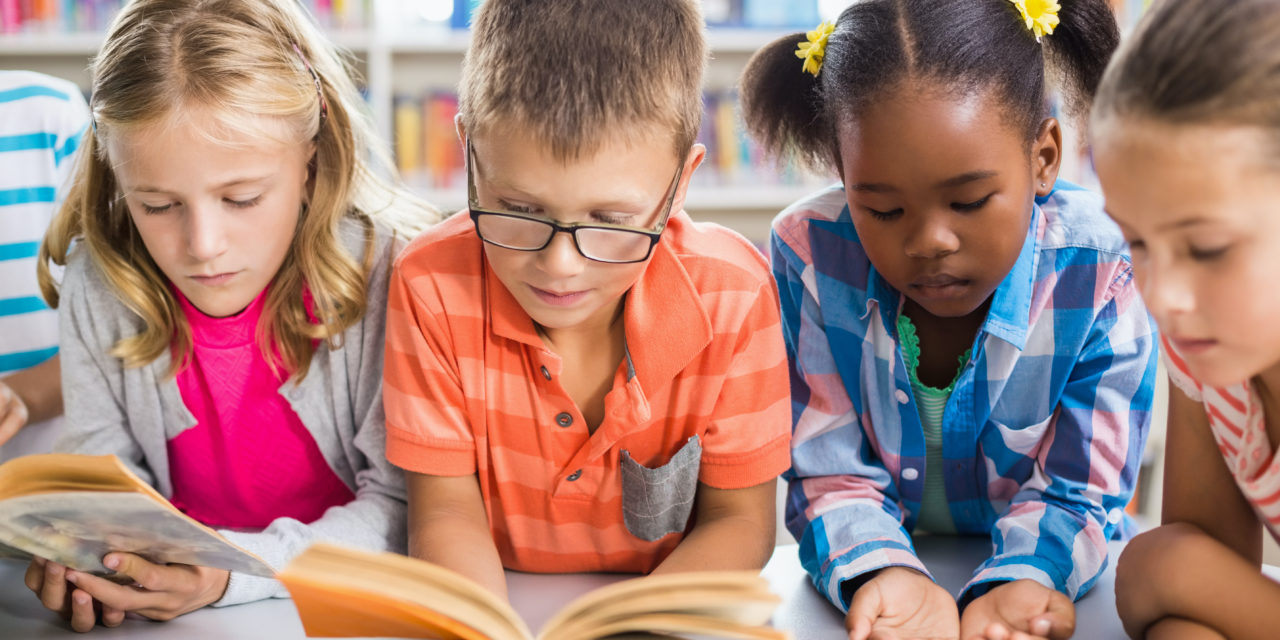A report from the National Council of Teachers of English (NCTE) encourages English and Language Arts teachers to move away from “book reading and essay writing” – and toward “speaking and listening” and “media education literacy.”
The NCTE commissioned a Task Force on Critical Media Literacy in June 2020. Anyone else remember what was happening that school year?
48 states had closed in-person education for more than 50.2 million public school students. But the NCTE thought it was important to assess “the current national landscape of policies, practices, resources, and dialogue related to critical media literacy education.”
Given that most schools were unprepared for distance learning, teachers were scrambling to keep up with basic lessons, and students were falling through the cracks, the launch of the Task Force was an exercise in tone-deafness, a disconnect from parents’ real concerns about their children’s education.
The report shows the NCTE’s deep concern with Marxist issues like “equity” and “power relationships.” It lists a core theme:
Exploring Representation and Power through Critical Reading, Listening, and Viewing. Educators value the use of teaching and learning practices that help to identify and disrupt the inequalities of contemporary life, including structural racism, sexism, consumerism, and economic injustice (their emphasis).
The NCTE was engaging in politics while schools and students were struggling to stay above water.
A second theme of the report is: “Empowering Voice with Writing, Speaking, and Self-Expression (their emphasis).” Schools and students should move away from the written word and engage in the “wide array of media genres and forms, including journalism, blog posts, advertising, political campaigns, YouTube videos, social media, Buzzfeed-style listicles, photo essays, podcasts, infographics, and many other forms.”
It’s true that good English and Language Arts (ELA) teachers have always engaged in interesting, fun, creative assignments that engage students. These might involve film, visual and performing arts, and various media. But the NCTE is advocating a change away from literature and writing, and advocating that these other modes of expression should be at the core of English classes – with a social agenda, to boot.
Not an elective or a unit on journalism, media, advertising and social media, but these other modes should be moved to the center of ELA teaching.
Part of what drives the NCTE is the fear of “misinformation,” “fake news” and “disinformation.”
The NCTE thinks teachers should “decenter” (Isn’t academic jargon the worst?) literature and writing, replacing those key components of academic life with the students’ opinions and interactions with media:
Everyone in our society now needs the ability to assess the widely varying quality of the information, entertainment, and persuasion that surrounds them, to evaluate the veracity and validity of claims, and to debunk misinformation when necessary.
But this brings up an important question: Who decides what is “fake news”? The partisan legacy media? Social media fact checkers? Teachers unions? Departments of education?
The report is filled with woke, so-called “progressive” language, using terms such as “systemic inequality,” “social justice,” “power and inequity” and “representation and power.”
With this new emphasis on “critical literacy,” students would “focus on the uses of literacy for social justice in marginalized and disenfranchised communities.” To understand “critical media literacy”:
Students examine mass communication, popular culture, and new technologies by analyzing relationships between media and audiences, information, and power, often with attention to media institutions and representations that address systemic inequalities and social justice.
The Task Force asserts that ELA teachers need to add “media education” to their list of activities so students can “begin to deepen sociopolitical consciousness as they recognize how power relationships structure the narratives that surround us.”
Most ELA teachers already have their hands full, as I know from five years teaching high school English.
They are typically expected to lead students through reading, understanding and interpreting literature, including poetry, short stories, plays, essays and novels. Along the way, they make forays into history, as they explain different periods of literature.
They work to help students develop writing skills, which includes teaching vocabulary and word usage, grammar and punctuation, research and organization skills, and thoughtful analysis of literature and ideas.
Most already emphasize spoken English, facilitating classroom discussions, helping with classroom presentations, and assigning poetry memorization and recitations.
English teachers function as cheerleaders and motivators, provoking interest in literature, working to make material relevant to students, and juggling their own assignments with the wide variety of sports, activities and other classes that students are involved with.
Good teachers maintain communication and connections with students and their parents. They function as amateur psychologists, knowing when to talk with parents and counselors, and reporting suspected abuse or neglect. They deal with student illnesses, absences and make-up work.
ELA teachers grade essays and tests, keeping records of results and attendance. They help prepare students for the variety of tests that come from state and federal governments, as well as equipping students for various college essays and entrance exams.
This is not a job for the faint-hearted.
It’s clear that the NCTE wants to pursue an ideological agenda, which is not what most parents want for their children.
Most parents want their children to have a basic grasp of literature that is part of our Western heritge. They want students to be proficient in reading and writing – not pushed by teachers into political ideology and social activism.
Related articles and resources:
BLM at School Week – Indoctrinating and Training Radical Activist Children
Fighting for the Next Generation: School Board Elections and Extremist Education Ideology
LGBT Activists, NEA and Librarians Promote Annual ‘Transgender’ Reading Day in Schools
Parents Say Mandatory Masking at School Harmed Their Kids, Poll Finds
Photo from Shutterstock.






